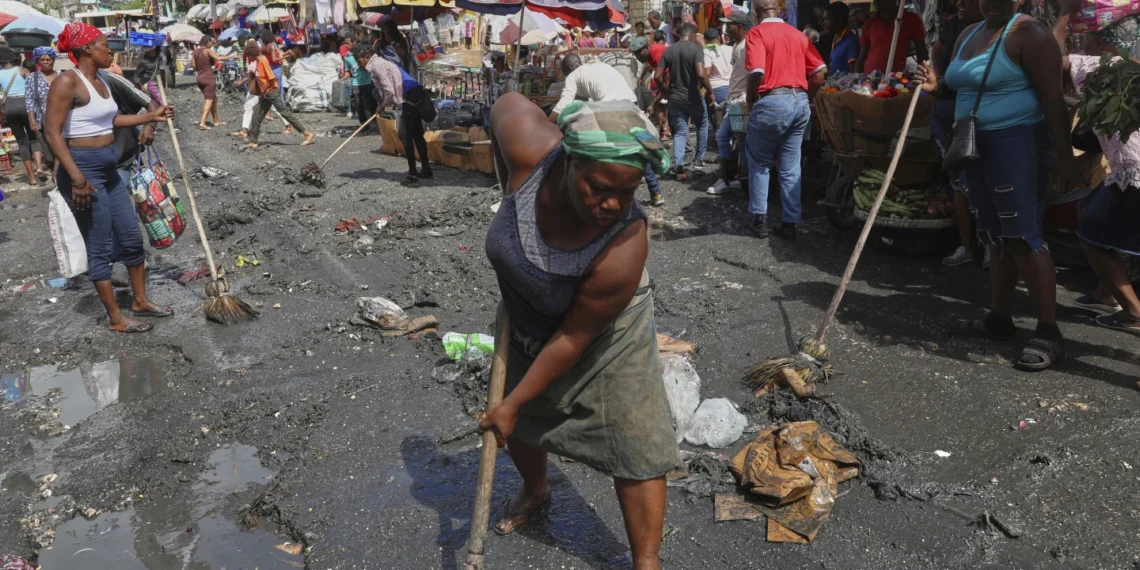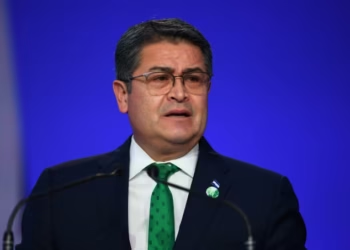The United Nations World Food Program (WFP) has launched an urgent appeal for $46 million to sustain critical food assistance for about 2 million Haitians over the next six months, as hunger deepens in a country torn by violence and instability.
Lola Castro, WFP’s regional director for Latin America and the Caribbean, sounded the alarm following a recent visit to Haiti. She described an increasingly desperate situation, where gang warfare has displaced more than 1 million people and left half the nation’s population — 5.7 million people — in dire need of food assistance.
Of those affected, 2 million Haitians fall into the most severe categories of food insecurity as classified by the Integrated Food Security Phase Classification (IPC), the global standard for assessing hunger crises. Among them, 8,500 are experiencing Phase 5 conditions, the most extreme level of hunger, which implies imminent starvation and widespread destitution.
“Haiti is one of only five countries in the world that have people in the Phase 5 category of catastrophic hunger,” Castro stated. “And it is really dramatic to have this in the Western Hemisphere.”
According to the U.N., the ongoing instability is largely driven by rampant gang violence that has surged since the 2021 assassination of President Jovenel Moïse. Today, gangs are believed to control roughly 85% of the capital, Port-au-Prince, and are rapidly expanding into rural areas.
The top U.N. envoy to Haiti warned earlier this year that the country could face “total chaos” if financial support for anti-gang operations continues to falter.
Last year, a multinational mission led by Kenyan police was deployed to Haiti with U.N. backing. However, the force remains significantly under-resourced, with only about 1,000 of the intended 2,500 personnel on the ground, and funding still falls short.

WFP Warns Of Empty Food Warehouses
Castro highlighted the WFP’s dwindling resources in stark terms. Using leftover funds from 2024, the agency managed to reach 1.3 million Haitians up until March this year. But without fresh funding, food supplies will run out by July, leaving no buffer for emergencies, natural disasters, or new waves of displacement.
“This year, we start the hurricane season with an empty warehouse,” she said, adding that the organization also lacks the cash to purchase food locally or respond quickly to crises.
“We are very concerned that a single storm can put hundreds of thousands of people in Haiti again into humanitarian catastrophe and hunger.”
Lola Castro
Historically, the WFP maintained reserves to support 250,000 to 500,000 people during sudden emergencies. Now, that emergency lifeline no longer exists.
The program, which normally delivers daily meals to around 500,000 schoolchildren in Haiti, will also be forced to scale back significantly. Without immediate financial support, that number will be slashed by half, threatening the well-being of hundreds of thousands of children who rely on school meals as a vital source of nutrition.
“With $46 million, we will be able to help the 2 million Haitians in most need of food, keep providing school meals for half a million children, and provide social protection for very vulnerable people in camps for the displaced.”
Lola Castro
She emphasized the importance of continued international support amid rising global attention on other conflicts and crises. “Haiti must not be forgotten,” she urged.
“We really need to stop this and to hold the line on hunger. We continue calling the humanitarian community to provide support.”
Lola Castro
As hurricane season looms, WFP’s plea is not just about providing food — it’s about preserving life and stability in a nation on the brink.
READ ALSO: Mahama Vows Sustained Action against Galamsey to Protect Forest Reserves























